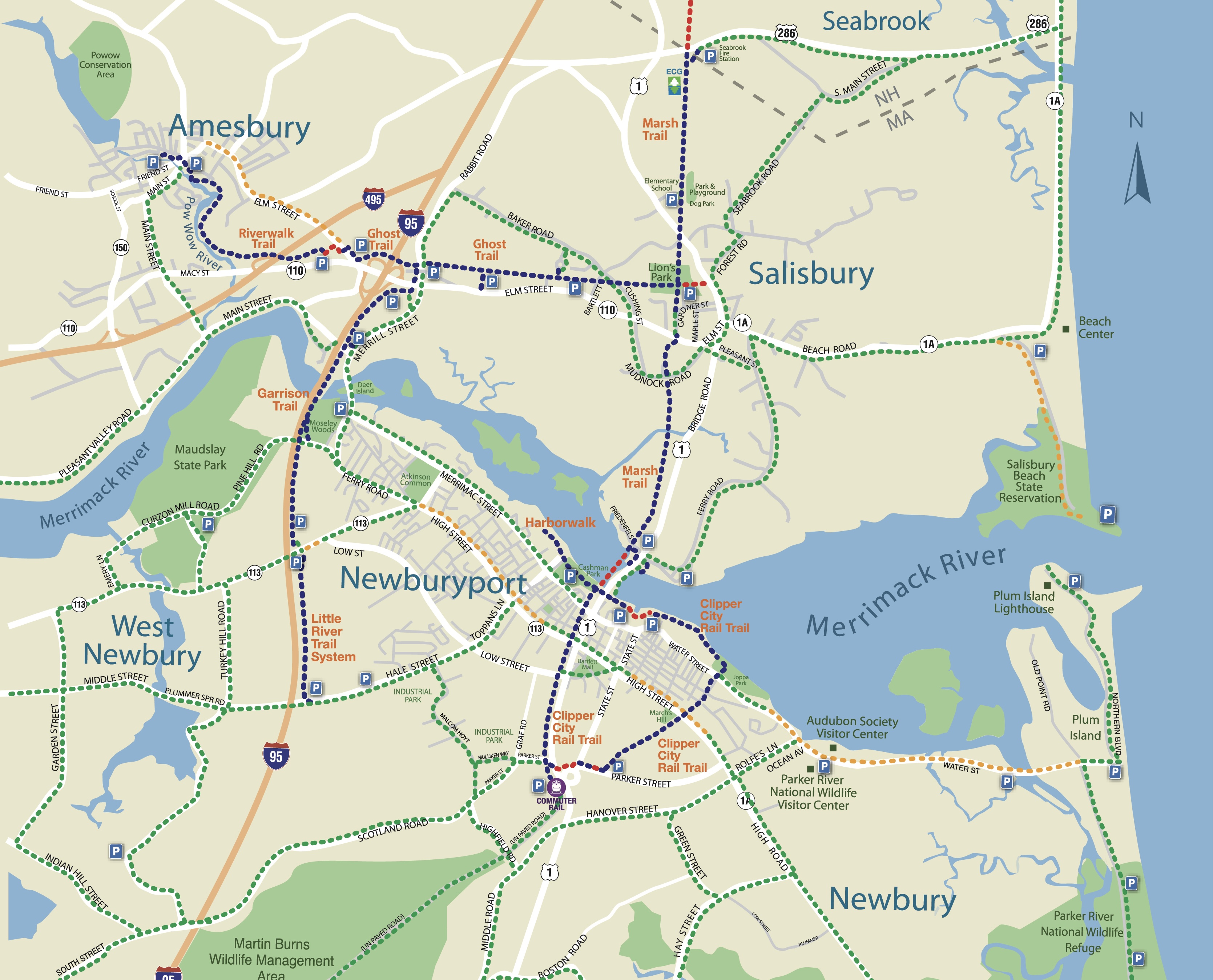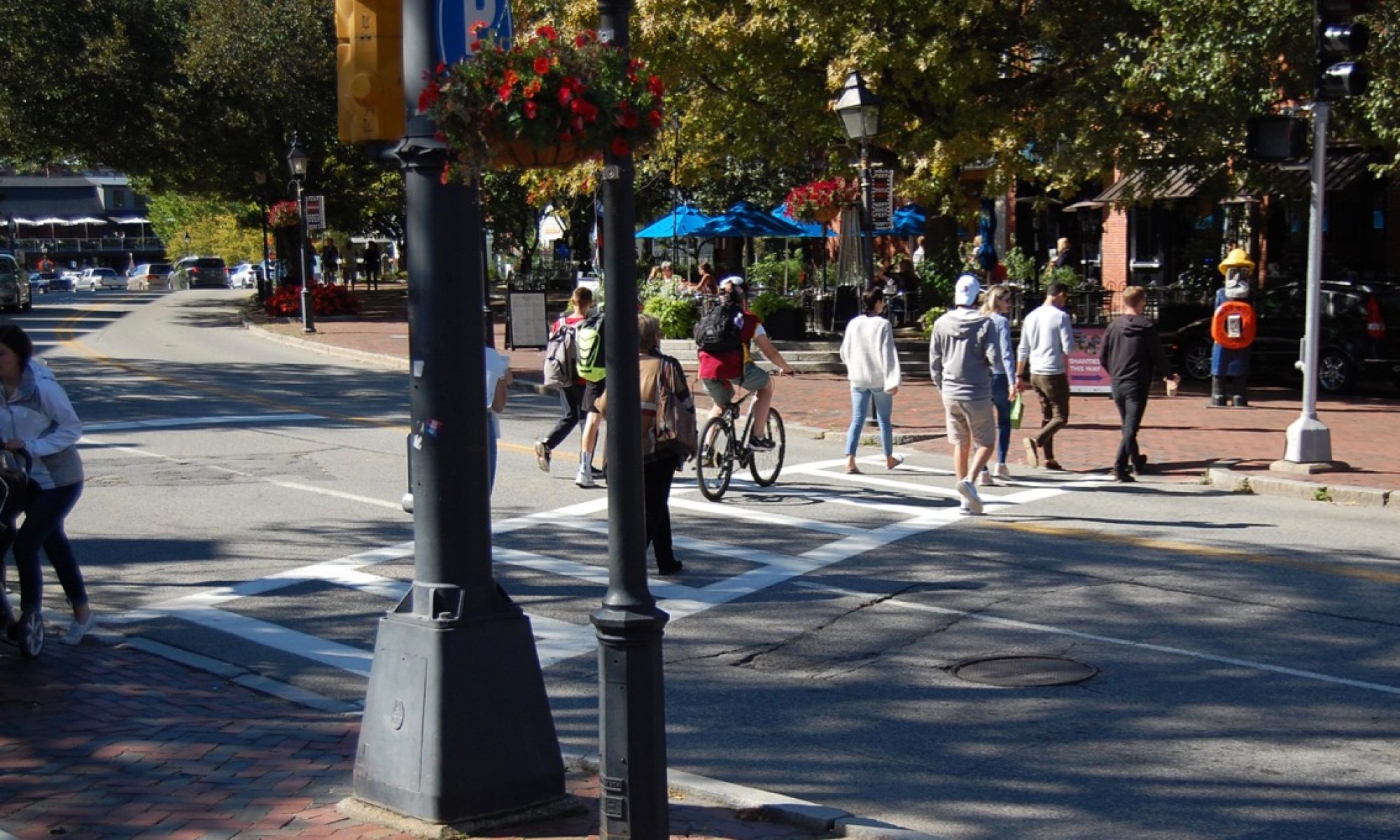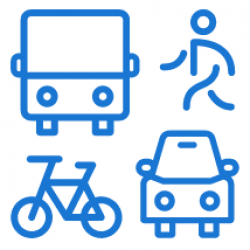Bike Share
For several years there have been sporadic discussions about establishing a small bike share program in Newburyport. Newburyport Livable Streets is now looking again at this idea. Beginning in November 2023, we have researched the experiences of existing bike share programs, talked with community operators of existing small bike share systems and a bike share vendor, and have held an initial exploratory meeting with the City administration and potential local partners.
What is Bike Share?
A bike share system is a public transportation service that provides bicycles for short-term use. This convenient and eco-friendly service promotes sustainable urban mobility.
Visitors to almost any major city will likely be familiar with the large bike share systems. Systems like Blue Bikes in Boston and Citi Bike in New York City can have hundreds of stations and thousands of bicycles spread across many square miles. However, there are also many examples of smaller bike share systems, some with as few as 10 or 20 bikes.
For example, the towns of Concord and Acton operate the Minuteman Bike Share, which consists of four stations and 20 bikes (each town maintains two stations and 10 bikes). Users pay $2 per hour and can pick up and return bikes to any station within the two towns. Commuters and other frequent users can purchase monthly and annual memberships which can reduce the cost per ride.
Why consider a bike share system for Newburyport?
Newburyport, Plum Island, and the surrounding communities are ideal to travel and explore by bike. The Coastal Trails network provides a safe and attractive off-road spine connecting town centers and transportation nodes. Distances between key destinations are well within a comfortable cycling range for most people. And cycling through historic neighborhoods and natural preserves is an attraction in and of itself. A bike share system would allow visitors to experience our area’s resources and attractions in an intimate way not possible by car.

A bike share system can provide a range of benefits to the City, its residents, and visitors. Affordable access to bikes for short-distance trips as an alternative to private vehicles reduces congestion, noise and air pollution, improving the quality of life for everyone.
Residents who don’t have the space to store a bike or the need to ride a bike regularly could use the system for recreational rides on the rail trails or for trips to the beach. Residents could also rent bikes to access public transportation, whether the train to Boston or a MEVA bus. Having shared bikes available would broaden the range of options for getting around the city and help residents to control their local transportation costs.
A bike share system could also make the city more accessible for visitors. With a bike share system, visitors arriving in Newburyport by train could rent a bike and enjoy an easy ride downtown or a pleasant trip to Plum Island or Maudslay State Park. A family who comes by car could park and explore the city with its comfortable rail trails. And residents would have an easy way for visiting friends to join them on bicycle trips around the city and out to the beach.
Bike share models
Bike share systems come in many forms but there are three basic models. Many large urban bike share systems have automated docking stations where the bikes are rented and returned. At the other end of the spectrum are dockless systems that let users pick up and drop off bikes anywhere, but these have proved to be troublesome for some communities.
The third approach is a hybrid system that has simple stations defined by virtual “geofences.” In a station-based bike share system, users can rent bikes at a designated station and return them after use to the same station or to any other station within the system.

Individuals use a mobile app to unlock and lock bikes and are charged for the time they use the bike, with the rate determined by the system owner. The charge starts when the user unlocks the bike and ends when the bike is returned and locked in a designated station. The app also lets users see where there are available bikes in the system.
A station in a hybrid system can be as simple as a concrete pad, with or without bike racks. In addition to providing a defined parking space so that bikes aren’t scattered around the trails and sidewalks, each station typically has a sign providing information about the bike share program and how to use it. Because they are defined virtually and have minimal infrastructure, bike share station locations can easily be adjusted or added based on experience and needs. This provides flexibility to let the system adapt to changing conditions.

What kind of bike share system would be right for Newburyport?
We believe that a small hybrid system, like the one in Concord and Acton, could work in Newburyport. Such an approach would let us start small, adjust station locations based on experience, and grow the system in accordance with demand and funding availability.
We think that an initial program with 4 to 6 stations and 20-30 bikes would make sense for our area. In the first phase, stations could be located at the MBTA Commuter Rail station, downtown Newburyport, other locations along the Rail Trail, and Plum Island. Later, stations could be added at destinations such as the Storey Avenue shopping area and Maudslay State Park.

If successful locally, the system might eventually expand to Salisbury or Amesbury, taking advantage of the off-road routes provided by the Coastal Trails network. This would require support and buy-in from the respective communities and could be some time in the future.

How would we pay for a bike share system?
Like every other public transportation system, from city streets to buses to commuter rail, bike share does not typically pay for itself. User fees can pay for a (typically small) part of the cost of a bike share system, but the great majority of the cost must be financed by some combination of public funds and private sponsorships. Therefore, an essential part of system planning will be to develop a financial plan and then to gain the support of the Mayor and City Council as well as potential private sponsors.
The City has submitted a request to the Merrimack Valley MPO to reserve funding in the regional Transportation Improvement Plan for capital costs of a three-year pilot program. If this request is approved, the funds would become available to the City in October 2024, which would enable us to plan for a Spring 2025 startup.
Let us know what you think!
In February we distributed a brief survey to gather insights from residents and others about the bike share proposal. The first 136 responses to the survey are summarized here.
We’ve also formed a planning group to help move this concept forward. A link to the presentation at the group’s first meeting is provided below. If you would like to participate in this group, or have ideas that you would like to share with us, please send us an email.
Resources
Planning Meeting Presentation, March 4, 2024 (22MB PDF)
Examples of Small Bike Share Systems
Minuteman Bike Share, Concord and Acton, MA
Portland Bikeshare, Portland, ME
Hershey Bikes, Hershey, PA
Wyoways Bikeshare, Wyomissing, PA
Fox Valley Bike Share, Kane County, IL

